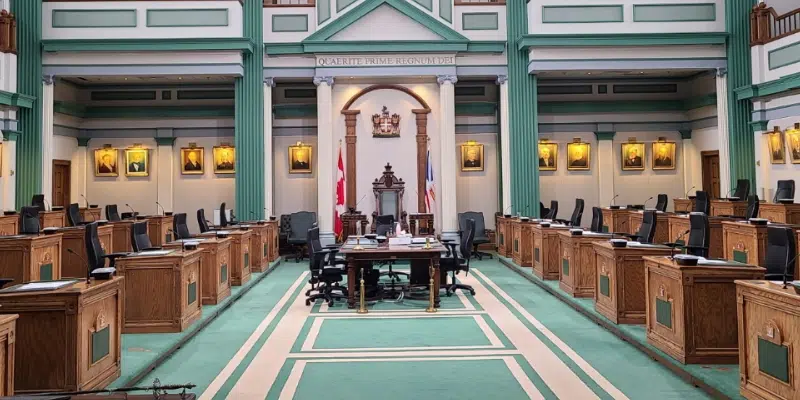The provincial government unveiled its long-awaited 2020 budget this afternoon, with the effects of COVID-19 and a sputtering oil industry figuring prominently.
On the surface, you might not know the government remains in deep dire straits, given the millions of spending for health care, education, justice, and infrastructure.
The reality is very little of that could’ve happened without borrowing $3-billion this year—more than double that of last year. That leaves the province’s net debt at a stunning $16.4-billion as major oil projects remain dormant and the costs of Muskrat Falls mount.
It also means a significant portion of expenses will just go to servicing that debt.

As for specifics, the province says it will proceed with $25-a-day daycare as of January 1, 2021, while increasing taxes on gas, diesel, tobacco, and vaping products. For now at least, no increase in personal or corporate business tax.
$100-million is set aside to deal with continued COVID-19 pressures, with $30-million for small business and community groups to try to weather that storm. Two public inquiries into Innu in Care and search and rescue are also still slated to begin this year.
The budget is essentially a six-month status quo roadmap just to get to next spring, with no real surprises, as promised.
But that’s expected to change dramatically next March when the full effects of the COVID fallout come into clearer and no doubt harsher focus.

Finance Minister Siobhan Coady calls the six-month fiscal plan a “pandemic budget”—one of just three provincial budgets brought down across the country during COVID-19.
There is no multi-year forecast this time around because of the volatility and uncertainty created by COVID-19. Coady says Saskatchewan did not provide a multi-year forecast when delivering its budget for the same reason.
View full Budget 2020 details at this link.
Read a breakdown of some of the key points in today’s budget through @VOCMNews on Twitter:
Facts from Budget 2020 in #nlpoli :
The projected deficit for 2020-21 is $1.84-billion, $309-million lower than the fiscal update in July.
The net debt is anticipated to reach $16.4-billion in 2020-21, $300-million lower than July's fiscal update.
Thread: pic.twitter.com/DzfWwGWmp2
— VOCM News (@VOCMNEWS) September 30, 2020























